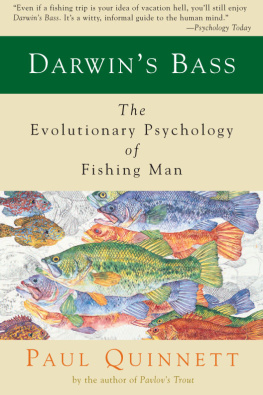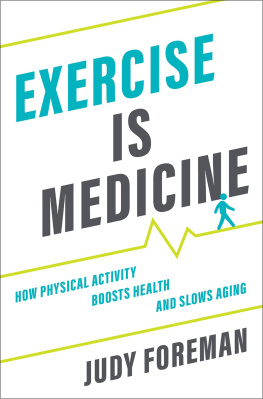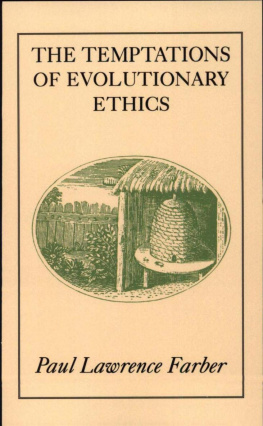We hope you enjoyed reading this Simon & Schuster ebook.
Get a FREE ebook when you join our mailing list. Plus, get updates on new releases, deals, recommended reads, and more from Simon & Schuster. Click below to sign up and see terms and conditions.
CLICK HERE TO SIGN UP
Already a subscriber? Provide your email again so we can register this ebook and send you more of what you like to read. You will continue to receive exclusive offers in your inbox.
Thank you for downloading this Simon & Schuster ebook.
Get a FREE ebook when you join our mailing list. Plus, get updates on new releases, deals, recommended reads, and more from Simon & Schuster. Click below to sign up and see terms and conditions.
CLICK HERE TO SIGN UP
Already a subscriber? Provide your email again so we can register this ebook and send you more of what you like to read. You will continue to receive exclusive offers in your inbox.

An Imprint of Simon & Schuster, Inc.
1230 Avenue of the Americas
New York, NY 10020
www.SimonandSchuster.com

20827 N.W. Cornell Road, Suite 500
Hillsboro, Oregon 97124-9808
503-531-8700 / 503-531-8773 fax
www.beyondword.com
Copyright 2017 by Sharad P. Paul
All rights reserved, including the right to reproduce this book or portions thereof in any form whatsoever without prior written permission. For information address Atria Books/Beyond Words Subsidiary Rights Department, 1230 Avenue of the Americas, New York, NY 10020.
This publication contains the opinions and ideas of its author. It is intended to provide helpful and informative material on the subjects addressed in the publication. It is sold with the understanding that the author and publisher are not engaged in rendering medical, health, or any other kind of personal professional services in the book. The reader should consult his or her medical, health, or other competent professional before adopting any of the suggestions in this book or drawing inferences from it. The author and publisher specifically disclaim all responsibility for any liability, loss, or risk, personal or otherwise, which is incurred as a consequence, directly or indirectly, of the use and application of any of the contents of this book.
Managing editor: Lindsay S. Easterbrooks-Brown
Editors: Ali McCart, Nevin Mays
Copyeditors: Gretchen Stelter, Emmalisa Sparrow Wood
Proofreader: Madison Schultz
Cover design: Devon Smith
Composition: William H. Brunson Typography Services
First Atria Books/Beyond Words hardcover edition April 2017
 and colophon are trademarks of Simon & Schuster, Inc.
and colophon are trademarks of Simon & Schuster, Inc.
 and colophon are registered trademarks of Beyond Words Publishing. Beyond Words is an imprint of Simon & Schuster, Inc.
and colophon are registered trademarks of Beyond Words Publishing. Beyond Words is an imprint of Simon & Schuster, Inc.
For more information about special discounts for bulk purchases, please contact Simon & Schuster Special Sales at 1-866-506-1949 or .
The Simon & Schuster Speakers Bureau can bring authors to your live event. For more information or to book an event, contact the Simon & Schuster Speakers Bureau at 1-866-248-3049 or visit our website at www.simonspeakers.com.
Jacket design by Devon Smith
Author photograph courtesy of the author
Library of Congress Cataloging-in-Publication Data
Names: Paul, Sharad P., author.
Title: The genetics of health : understand your genes for better health / Sharad P. Paul.
Description: New York : Atria ; Hillsboro, Oregon : Beyond Words, [2017] | Includes bibliographical references.
Identifiers: LCCN 2016050053 (print) | LCCN 2016051602 (ebook) | ISBN 9781501155413 (hardback) | ISBN 9781501155420 (paperback) | ISBN 97815011555437 (eBook)
Subjects: LCSH: Human genetics. | Alternative medicine. | Health. | BISAC: HEALTH & FITNESS / Healthy Living. | HEALTH & FITNESS / Alternative Therapies. | HEALTH & FITNESS / Health Care Issues.
Classification: LCC QH431 .P358 2017 (print) | LCC QH431 (ebook) | DDC 616/.042dc23
LC record available at https://lccn.loc.gov/2016050053
The corporate mission of Beyond Words Publishing, Inc.: Inspire to Integrity
For Natasha
CONTENTS
Introduction
A SCIENTIFIC WALKABOUT FOR WELLNESS
If this were so; if the desert were home; if our instincts were forged in the desert; to survive the rigours of the desertthen it is easier to understand why greener pastures pall on us; why possessions exhaust us, and why Pascals imaginary man found his comfortable lodgings a prison.
Bruce Chatwin
T he development of our species is still a veritable work-in-progress. For humans living in the present, and indeed for any creature, our present is like a photograph, and our species seems eternal. This dangerous illusion keeps our focus away from the invisible photographer called time, which chronicles the story of our evolution in black and white, so it can be reproduced as a testament to our biological era at a later date.
We humans are essentially vain creatures who have developed a penchant for self-imagery. But is this evolutionary self-photograph unintentionally symbolic? Man is placed at the top of the image, with many creatures underneath. Yet no one seems to be moving, which is reasonable since this is a photograph.
Studying evolutionary biology is merely poring over an old selfie, where background matters less and the environment ends up a mere prop for the individual. Extinction always seems to happen to other animals; thats why our ancestors and other extant and extinct species matter. They need to be rememberedbecause lessons we learn, or dont heed, can be the doing or undoing of our species.
One of my many academic roles is at the School of Medicine, University of Queensland, Australia. In Australia, going walkabout refers to a rite of passage that the Aboriginal people undertakea time of solitude spent searching for songlines of their ancestorsthe idea being to imitate the past and return with renewed energy to face the future.
In traditional Australian Aboriginal thinking, there exists a creation era and creation ancestorsif you think about it, these concepts pretty much sum up both the early evolution of life and the later migration of populations around the world. In the past, due to visceral bias rather than scientific discomfort among some researchers, people searched for alternative explanations of our ancestral origins. Surely, the Europeans couldnt have originated in black Africaeven though research shows that Homo erectus, the first upright human beings, made their appearance about 1.9 million years ago, and they were followed by Homo neanderthalensis (Neanderthals), and finally by Homo sapiens (modern humans), our common race.
Vincent van Gogh once said, Looking at stars always makes me dream, as simply as I dream over the black dots representing towns and villages on a map. He mused that while we could take a train to travel between towns, we had to take death to reach a star. But life is to be lived, cherished, and enjoyed, not something we merely exist through. Birth and death are natural inevitabilitiesit is the in-between that we have control over. But there is no map that can illustrate the fickleness of human behavior. Thats why songlines matter; our history makes us more than we make history.
Next page












 and colophon are trademarks of Simon & Schuster, Inc.
and colophon are trademarks of Simon & Schuster, Inc. and colophon are registered trademarks of Beyond Words Publishing. Beyond Words is an imprint of Simon & Schuster, Inc.
and colophon are registered trademarks of Beyond Words Publishing. Beyond Words is an imprint of Simon & Schuster, Inc.